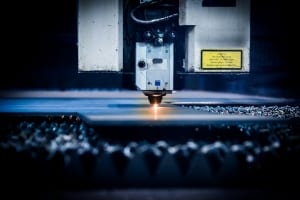What Laser Choices to Consider for Your CO2 Laser Machine?

For those who seem to be in this boat, keep reading. Along with looking at reviews, like https://www.nyccnc.com/we-bought-a-boss-laser/, consider some of the factors listed here.
Portability
Before buying a laser cutting machine, it is a good idea to consider how and where it will be used. For example, if it will be used in a fixed location, portability may not be anything to worry about. However, for someone who wants to take the machine to craft shows or other events, portability is a must-have.
One of the best things about hobby lasers is that they are usually portable. It is possible to take them on the road and put them on a sturdy table close to a power supply. This is going to allow a person to make custom items, regardless of where they go.
The only issue with portability is that a person is going to be limited to the total workspace the machine offers. Usually, hobby machines are going to have a workspace that spans about 20” by 12”. There are some that will have access panels to work with longer materials, but this is not always the case. If an individual knows they need to cut 36” long pieces of wood, they should look for another option.
Functionality
When buying anything, the first question to consider is how it will be used. Usually, there are two categories that someone is going to fall into: a professional or a hobbyist.
A hobbyist is a crafter or artist who is looking for something they can use for small-scale production. For example, they may want to start an Etsy shop or even participate in craft shows and events. Or, they could want a laser cutter to make unique gifts for friends and family members. If this is the case, then a hobby machine is the perfect option.
However, for those who plan to run a full-time business in a workshop that gets a lot of use, a hobby machine will probably not offer the power or speed that is needed. If goals are production-based, then professional cutters will be able to handle the workload on a bigger scale.
Range
A hobby laser will usually come with additional, optional accessories that can be used for unique projects. For example, it is possible to use a rotary for engraving on a curved object, such as a champagne glass or bottle. There are other accessories that can be considered too. Those options include different focus lenses, which allow for different variations of detail and speed to more easily individualize projects. It is important to remember that not all hobby lasers will offer these options, which means that, if someone knows they want to engrave on wine bottles, they should make sure the laser provides this option.
Power
Usually, a hobby laser is going to come equipped with a 40-watt CO2 laser tube. With this amount of power in place, it is possible to cut a quarter of an inch of most types of non-metal materials, such as acrylic, wood, fabric, and others. If a project requires someone to cut material that is thicker or if they need to cut metal, a more powerful laser is needed. This means that a bigger machine needs to be purchased.
Reputation
There are more than a few options and players in the laser cutter market. However, with some time and effort, it is possible to find the right machine. While it may seem daunting at first, it does not have to be.
It is a good idea to consider the reputation and history of each of the companies and manufacturers that are being considered. For example, how long have their machines been available on the market? What do real users of these machines have to say about them? One of the best ways to cut through all the confusion is to see what type of rating the business has from the Better Business Bureau. This will provide insight into if any complaints have been filed against the company relating to the tools and machines that are sold.
However, finding a reputable seller goes beyond their BBB rating. It is also a good idea to look at the variety of tools they offer and what third-party review sites, such as Yelp, say. This provides even more insight about the company and if they should be trusted with an investment of this size.
It is also a good idea to find out if the seller offers any type of guarantee or warranty. This is going to ensure that if issues arise, the seller will be there to fix the problem regardless of what it is.
Test Them Out
When it comes to buying a new tool or machine, it is always a good idea to test out how they work before moving forward with the purchase. If possible, find a friend or someone else who has the device being considered. Ask them if it would be possible to use it. This is the best way to figure out if a person is going to be able to use the device for their project needs.
Finding the Right Laser Cutter
When it comes to finding the right laser cutter, there are more than a few factors to consider. Be sure to keep the information here in mind, which is going to help ensure that the right cutter for the job is found and purchased.
Remember, the right cutter for one person may not be right for someone else. This is why it is so important to use the tips and information here to find the cutter that meets a person’s needs regardless of the project they plan to use the cutter for.
